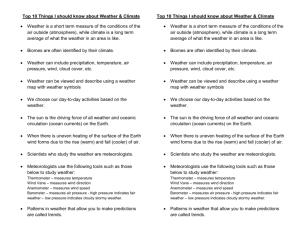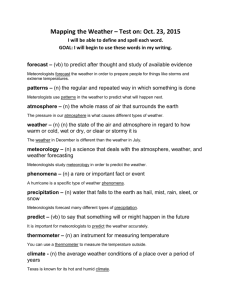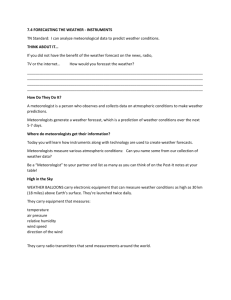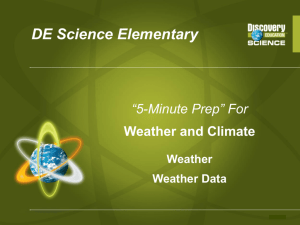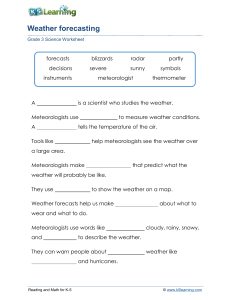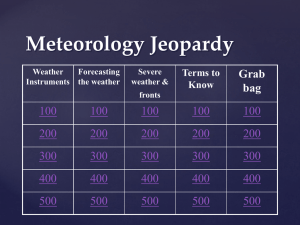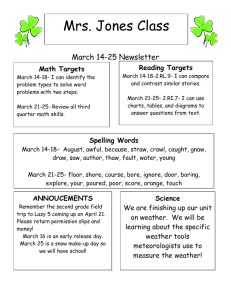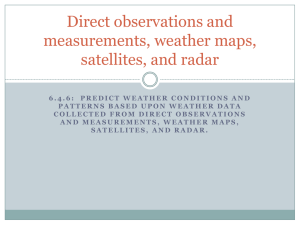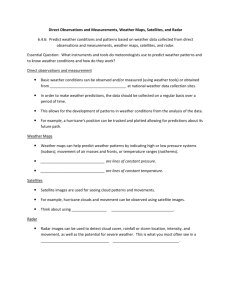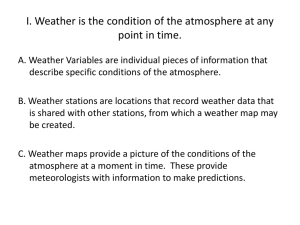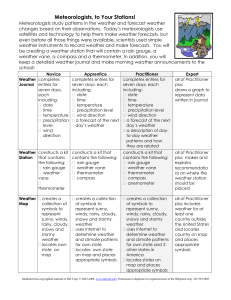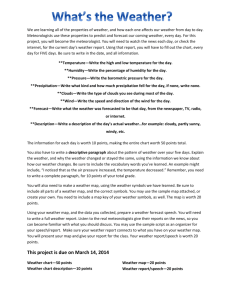Read paragraph 2,5 - Inspiration for Instruction
advertisement
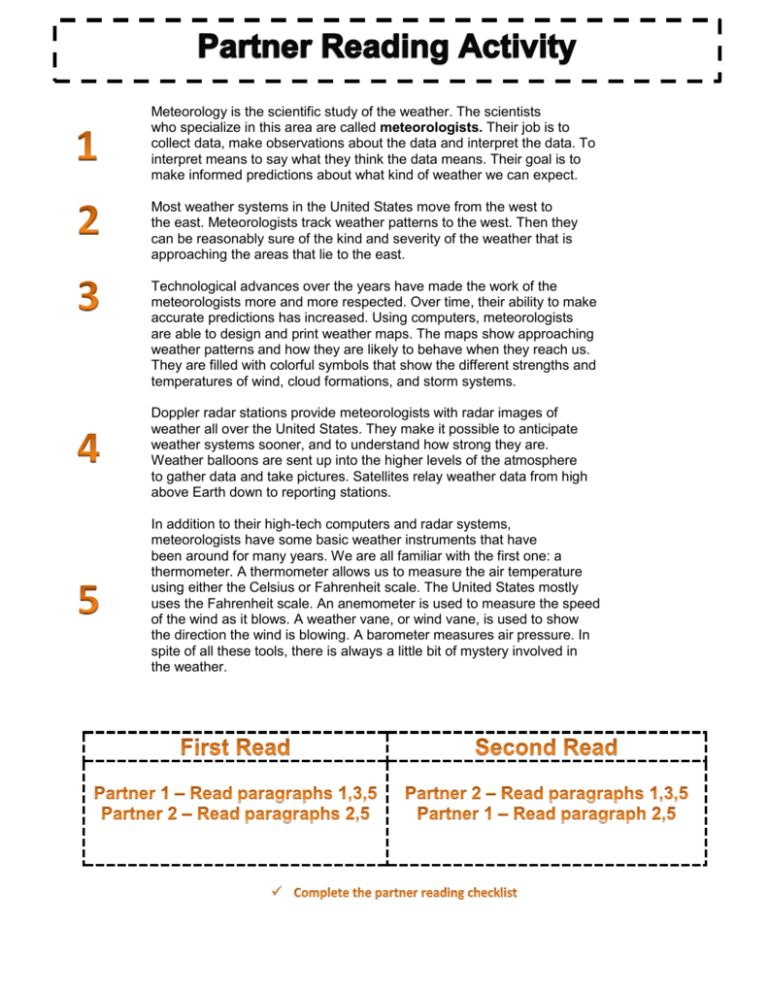
Meteorology is the scientific study of the weather. The scientists who specialize in this area are called meteorologists. Their job is to collect data, make observations about the data and interpret the data. To interpret means to say what they think the data means. Their goal is to make informed predictions about what kind of weather we can expect. Most weather systems in the United States move from the west to the east. Meteorologists track weather patterns to the west. Then they can be reasonably sure of the kind and severity of the weather that is approaching the areas that lie to the east. Technological advances over the years have made the work of the meteorologists more and more respected. Over time, their ability to make accurate predictions has increased. Using computers, meteorologists are able to design and print weather maps. The maps show approaching weather patterns and how they are likely to behave when they reach us. They are filled with colorful symbols that show the different strengths and temperatures of wind, cloud formations, and storm systems. Doppler radar stations provide meteorologists with radar images of weather all over the United States. They make it possible to anticipate weather systems sooner, and to understand how strong they are. Weather balloons are sent up into the higher levels of the atmosphere to gather data and take pictures. Satellites relay weather data from high above Earth down to reporting stations. In addition to their high-tech computers and radar systems, meteorologists have some basic weather instruments that have been around for many years. We are all familiar with the first one: a thermometer. A thermometer allows us to measure the air temperature using either the Celsius or Fahrenheit scale. The United States mostly uses the Fahrenheit scale. An anemometer is used to measure the speed of the wind as it blows. A weather vane, or wind vane, is used to show the direction the wind is blowing. A barometer measures air pressure. In spite of all these tools, there is always a little bit of mystery involved in the weather.
